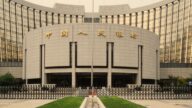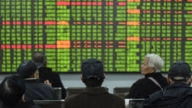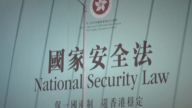【新唐人2012年1月10日訊】進入2012年,在學術界有關中國未來的討論越來越多。最近,中國大陸一位學者提出了一個觀點,認為,未來對中共當局最大的威脅來自年輕知識份子。我們來看看他是怎麼說的。
廣東人文學會副秘書長,信孚研究院研究員余以為在去年12月發表博文,標題為《最大威脅來自年輕知識份子》。
文章開篇以數據說話。他寫道:2012年中國普通高校畢業生規模達到680萬人,比上年增加20萬。加上前兩年200萬未就業人數,今年纍計有近千萬大學生要找工作。
文章還指出,中國目前的現狀是:政治體制改革滯後使中國產業升級困難,文化、金融等知識產業在政治高壓下緩慢難行。而中國看似繁榮的經濟,但就業機會也只是增加了建築工地和生產線的就業機會。
余以為提出,農民工短缺以及大學生失業,縮小了大學畢業生起薪與農民工工資差距,並且,可能成為未來社會動盪的主因。
美國紐約城市大學政治學教授夏明也觀察到,隨著目前中國經濟危機爆發,中國每年有幾百萬的大學生找不到工作。
美國紐約城市大學政治學教授夏明:「大學生花了大量的錢,去投資教育,而教育的質量也不高,甚至畢業的時候也拿不到一個正常的好的文憑,而且拿到文憑也找不到工作,這些使得大學生成為中國目前社會中,恐怕是一個最為騷動不安,也容易造反的人群。」
大陸活躍時評人童大煥1月8號也發表博文,表示贊成余以為的觀點,並且認為年輕知識份子的「威脅」不僅是「將來時﹙式﹚」,而且已經成為「現在進行時﹙式﹚」。
童大煥認為,中國高企的房價和「大學生民工化」的生存環境形成刺激和反差,使當代年輕的大學生成為「個體能量很小,群體聲音很大」的怒吼的一群。
夏明發現,中共思想體系控制的那套宣傳手段,在新一代知識份子當中,越來越失去效用。
美國紐約城市大學政治學教授夏明:「中國有一個傳統,青年知識份子敢為天下先的一個衝動,所以中國從20世紀到現在都看到了,青年學生往往會走在社會的前列,往往成為中國的…無論是民主化還是自由化先鋒隊伍。」
不僅是中國大陸的學者討論這個話題,日本作家加籐嘉一也注意到了中國80後、90後這個群體。
加籐嘉一認為,大學生的問題是今天中國最大的政治,是展望中國未來的一面鏡子。
新唐人記者常春、李靜、蕭宇採訪報導。
Young Intellectuals Deemed CCP’s Greatest Threat
Academic discussions on China’s future are mounting, as a
Chinese scholar recently put forward their view.
The greatest threat to Chinese Communist Party (CCP)
regime is deemed to come from young intellectuals.
Yu Yiwei, deputy secretary of Guangdong Institute of
Humanities and Xinfu Institute researcher, published a blog.
Its title: “The biggest threat comes from young intellectuals".
The article cited data that China’s college graduate figures
will reach 6.8 million in 2012.
This figure increased by 200,000 compared to last year.
There are also 2 million unemployed graduates from the
previous two years.
This means 2012 will have nearly 10 million
university-graduate job seekers.
Yu’s article comments on China’s current situation, with
slow political reform causing difficulty in industrial upgrading.
Cultural, financial and other knowledge industries develop
slowly under heavy-handed political policy.
China’s apparent prosperity merely increases jobs
at construction sites and production lines.
Yu Yiwei said the gap in college graduates’ starting salaries
and migrant workers’ salaries had reduced.
This is due to a migrant worker shortage and jobless college
graduates.
This may become the main cause of future social unrest.
Xia Ming, political science professor at City University of
New York reviewed the situation.
Along with China’s current economic crisis, millions of
college graduates have been jobless each year in China.
Xia Ming: “Students spent a lot of money on their education.
With poor quality of education, they even couldn’t obtain
a normal good diploma after graduating.
What’s more, even holding diplomas, they couldn’t find jobs.
These university graduates may become the most restless
and rebellious group in today’s China. “
Commentator in China, Tong Dahuan, supported Yu’s views
in a blog article dated January 8.
Tong thinks that the “threat" of young intellectuals is not only
“the future tense”.
It is also “the Present Progressive Tense”.
Tong observed alarming contrast between soaring housing
prices and “migrating university students" living standard.
Contemporary young university graduates have turned into
a roaring group.
Their “individual energy is very small, but have a very loud
voice en masse”.
Xia Ming said, for the new generation of intellectuals, CCP’s
propaganda techniques have increasingly lost its influence.
Xia Ming: “In Chinese tradition, young intellectuals have
impulse to take the lead, as we’ve seen over the last century.
Young students often take the forefront in the community, so
they become China’s pioneers for democracy and liberty. “
On top of Chinese scholars, Japanese writer Kato Yoshikazu
also joined the discussion on the issue.
Kato has noticed Chinese people who were born in 1980s
and 1990s.
In Kato’s view, the university graduate issue becomes
China’s biggest political problem.
It’s also a mirror for predicting China’s future.
NTD reporters Chuang Chun, Li Jing and Xiao Yu

























